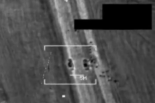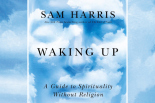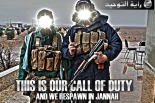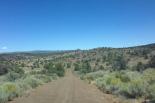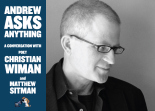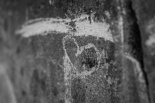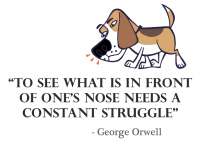Well, I couldn’t resist, could I? Sam Harris is a friend and great interlocutor. We’ve hashed out the issues on Israel and, indeed, religion itself in dialogues. See the Gaza conversation here; and the longer exchange of emails on religion here. I always learn something from him – and I have always thought of him as somewhat different than an atheist like Hitch. Why? I cannot imagine Hitch spending time in an ashram, or being dedicated to regular and disciplined meditation, or writing something like this:
I once spent an afternoon on the northwest shore of the Sea of Galilee, atop the mount where Jesus is believed to have preached his most famous sermon … As I gazed at the surrounding hills, a feeling of peace came over me. It soon grew to a blissful stillness that silenced my thoughts. In an instant, the sense of being a separate self – an “I” or a “me” – vanished. Everything was as it had been – the cloudless sky, the brown hills sloping to an inland sea, the pilgrims clutching their bottles of water – but I no longer felt separate from the scene, peering out at the world from behind my eyes. Only the world remained.
That’s a passage from Sam’s new book, Waking Up: A Guide To Spirituality Without Religion. It tackles big subjects – neuroscience, consciousness, meditation, faith – in his sometimes dense but always pellucid fashion. At times, the book is actually quite funny – there’s a  part about him dealing with various water leaks in his house that cracked me up.
part about him dealing with various water leaks in his house that cracked me up.
And the book’s argument is a rare and serious one: that it is possible to find a place in one’s mind where one is no longer in one’s mind. This elusive idea of consciousness is the basis of a peace and serenity and balance that we in the West have so often failed to achieve, even as our civilization constantly scales new heights. This can be achieved within a religious tradition – such as Buddhism or a Merton-like Christianity – but Sam also insists there need be no religion to the experience at all.
Now, I’m religious as well as spiritual, a believer in prayer and meditation as vital parts of any healthy faith life – while Sam is unrepentantly hostile to any idea of divine revelation, or anything but consciousness beyond our own delusional egos. And it struck me that many Dish readers – some engaged in our religious and spiritual coverage, some hostile to religion but open to the sublime and the spiritual – would get a huge amount out of the book, and the conversation it could prompt.
So drum roll … this is our September book of the month.
Buy the book now at Amazon and help us get a little affiliate revenue while you’re at it. I have a head start, because Sam got me an advance copy. He’s agreed to join the conversation in its final stages. I hope we can get somewhere in a debate often defined by polarization and cheap rhetoric – and see where we overlap and where we still differ.
And with your input, religious and spiritual people, I hope we can advance the conversation about spirituality as opposed to religion as well. I’ve long believed that the key thing we need right now is a revival of a Christianity less concerned with dogma and more focused on faith as a way of being in the world. Sam’s is as good a provocation on those issues as any out there. So join in! Get the book here – and we’ll start the discussion after the beginning of October. Send your thoughts to bookclub@andrewsullivan.com and there’s a good chance you’ll see them posted.


